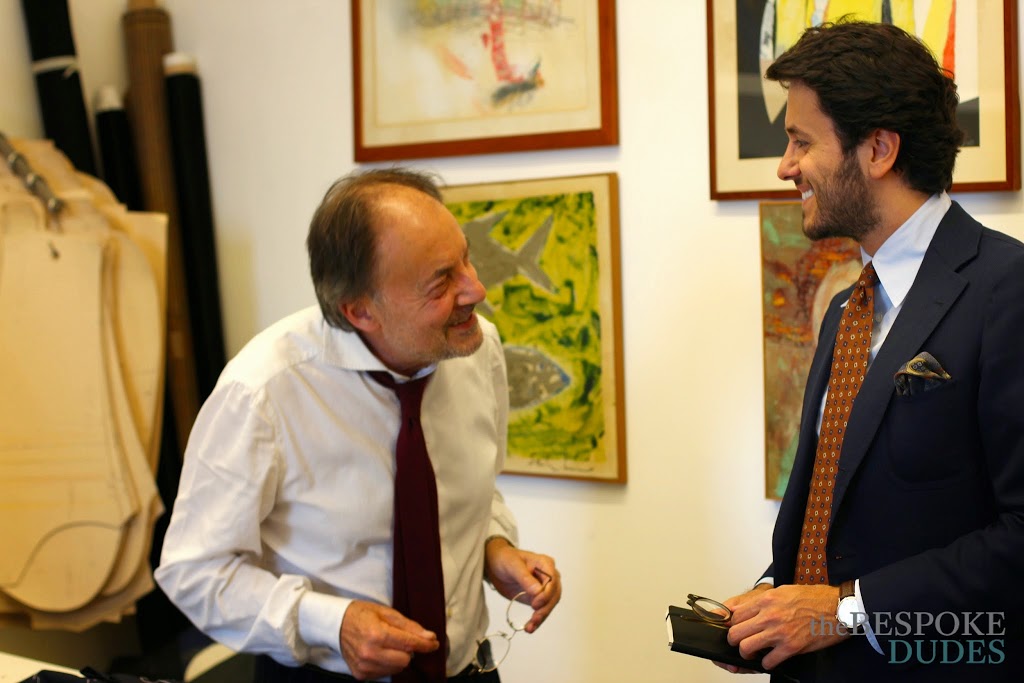I meet Master Luigi Dal Cuore in his new sartoria of Via Caracciolo 17, Naples. A breathtaking view of the sea from his windows makes my stay even more enjoyable, between fabrics and twentytwo employees. Here both jackets and trousers are made inside the sartoria and, beside the true bespoke, they also create ready-to-wear garments for foreign markets. If the customer has a big chest, Master Dal Cuore brings the first dart till the bottom so as to make the bottom smaller and the upper part wider; the same happens if the client is big-bellied, in order to avoid that the bottom is too loose.
The armhole here is narrow, the neck is high. Luigi Dal Cuore prefers the “open armhole” (giro aperto) on his jackets – “it’s more complex to realize, compared to the closed armhole” – he says while showing me a sleeve with “rullino”. “Open armhole” means that the shoulder is folded on itself and so is the sleeve, different from the “manica a camicia”. Master Dal Cuore makes the first fitting with both the sleeves stitched and also removes the canvas from the neck to see whether it fits good or not.
In case of a long-limbed customer, he does not make the long dart on the front, but rather works the fabric with an horizontal dart underneath the pocket (pictured below) so as to close the bottom better. Moreover it is interesting the working of the spalla squarciata (litterally “ripped shoulder”), that is a peculiar shape given to the shoulder, in order to fit the head of the humerus; it is made by hand, whereas once it was made with a 5Kg flatiron, but “today the workers who used to handle that heavy flatiron are hard to find” says the Master. Today his employees are women in majority, so they work the spalla squarciata by hand.
Bespoke hugs,
Fabio
Nei soggetti longilinei, inoltre, il Maestro non fa la ripresa fino al fondo, ma lavora il tessuto con una piccola pince orizzontale nascosta dalla tasca (vd. foto), in modo da far “girare” i davanti. Interessante, infine, la lavorazione della spalla squarciata, ovvero l’effetto di bombatura sulla parte anteriore dei davanti, che serve ad alloggiare la testa dell’omero. Quest’effetto oggi si ottiene attraverso un sapiente lavoro manuale, mentre un tempo si usava il ferro da stiro di cinque chili. “Oggi non ci sono più i lavoranti di una volta, che lavoravano il tessuto con il pesante ferro da sarto” – aggiunge Dal Cuore. “Le mie impiegate sono in maggioranza donne, quindi ho insegnato loro ad ottenere lo stesso effetto con una tecnica manuale”.
horizontal dart - pince orizzontale
Drop-shaped buttonhole - Asola a goccia
Rullino
Measurement - Misure
Fisrt fitting
With Mr Tito Allegretto
with Mr Damiano Annunziato
If you like what we are doing here, please consider following TBD on Facebook - Tumblr - Instagram - Twitter
Bespoke Hugs, Fabio







